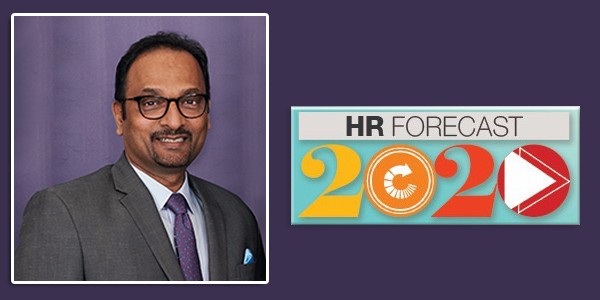Technology, data, employee experience: What’s high on agenda
In my opinion, it is not possible to choose any one. They are interdependent and draw synergies from each other. Technology is already impacting almost every stage of the employee lifecycle, and combined with data, it has been revolutionising the way we work today and will continue to do so in the future as well. Together, they will have a profound effect on the employee experience. This new synergistic bundle will enable the creation of specialist HR functions, which will not only demonstrate a return on investment but may also allow successful HR teams to become profit centres, selling managed services for profit.
The biggest challenge for HR in your sector
I think the biggest challenge for us, as an industry, is to embrace technology as a friend and not a threat. Disruptive technology, such as Artificial Intelligence (AI), Machine Learning (ML), robotics, and so on, will definitely impact the way we look at skilling in the industry. However, we have to be cognizant of the fact that deployment of technology will both replace and supplement human labour. As an industry, we should focus completely on ensuring that our education and skilling infrastructure is relevant and develops continuously to keep up with the transformation.
KPMG and FICCI recently published their report on the impact of ‘digital’ in the travel and tourism industry. The report emphasised that hospitality brands are embracing technology and are transforming into experience platforms, while automating operations. However, the hospitality sector is highly human-intensive and will continue to be predominantly driven by manual processes.
Like Jack Welch very aptly remarked, “If the rate of change on the outside exceeds the rate of change on the inside, the end is near.”
Internal equality and internal equity
I think that the change is already happening and it is about time too. The fundamental difference between ‘equal’ treatment and ‘fair’ treatment is based on the premise that equity sets the stage for equality. If equality is the end goal, equity is the means to get there. Equity is all about fair treatment to everybody, according to their needs.
The change has to be system driven and top down. Leadership must drive policies, practices, benefits and opportunities that are more inclusive in nature. Information technology can start with a simple benefit and culminate into an ecosystem that drives equality through equity.
Digital recognition and virtual medals
The benefits of digital recognition are many. They help save time, cut costs and also prove to be effective across different generations of employees in today’s time. A big advantage is that of being able to provide spot recognitions, which are highly valued by employees as they come at the right time and may even create a positive reinforcement effect.
People are more appreciative of being recognised socially, with rewards that are personalised, practical and meaningful. There is a lot of scope and untapped potential in the space of digital recognition in India. Research across the industries has shown that recognition in all its forms, whether it is by managers or by peers, is likely to have a positive impact on employee experience. If technology marries employee recognition, it can create a magical experience for employees. At IHCL, our award-winning STARS programme enables such spot recognition through an online platform.
Data Deluge: More power to HR
This dichotomy is often positioned as a classic decision-making dilemma. However, it is incorrect to think that when we make data-driven business decisions, it is purely a logical process devoid of human emotions and feelings. The reality is that, when human beings learn to align both cognition and emotion, they make the most effective decisions.
Data informs the decision, but decisions cannot be made in a vacuum of data. At the same time, decisions based purely on emotion will be a case of hit-and-miss, thereby resulting in a potential minefield of outcomes.
The reality is that our decisions are not driven by data. They are informed by data and based on several variables beyond data, including intuition, past experiences, judgement and context. If data and gut feeling do not coincide, then the gut feeling can always be substantiated or disproved by more data— by delving deeper into the data.
(This article first appeared in HRKatha print magazine)



